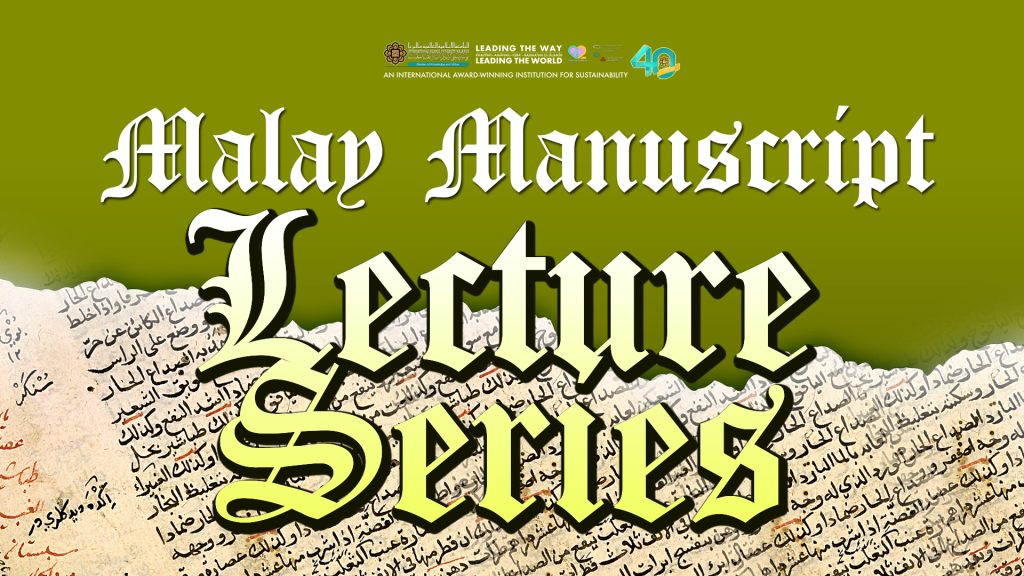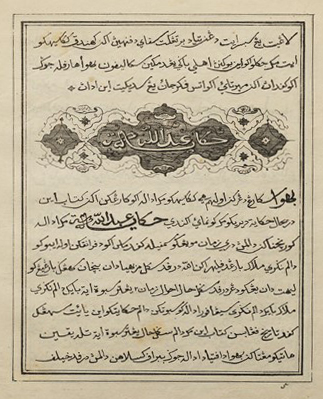About Malay & Islamic Manuscripts
Malay manuscripts have played a
significant role in shaping the cultural heritage of Southeast Asia,
particularly in the Malay Archipelago, which encompasses modern-day
Malaysia, Indonesia, Brunei, Singapore, and the southern Philippines.
These manuscripts serve as primary sources for understanding the
history, culture, and religious practices of the Malay people. Many of
these manuscripts also contain Islamic teachings, reflecting the spread
of Islam throughout the region. In this academic write-up, we will
explore the significance of Malay and Islamic manuscripts and their
impact on Southeast Asian culture.
History of Malay Manuscripts: The origins of Malay manuscripts can be traced back to the ancient Malay Kingdoms, which were influenced by Hinduism and Buddhism. The earliest Malay manuscripts were written in Kawi, an Old Javanese script that was used to write both Sanskrit and Old Malay. The oldest surviving Malay manuscript is the Tanjung Tanah Code, written in Kawi script, which dates back to the 7th century. During the 13th century, the spread of Islam throughout the Malay Archipelago led to the creation of new manuscripts written in the Arabic script. These manuscripts served as a means of spreading Islamic teachings and were written in a variety of genres, including Qur’anic commentaries, legal texts, and mystical treatises. Many of these manuscripts were written by Islamic scholars from the Middle East and India who traveled to Southeast Asia to spread the teachings of Islam.
Significance of Islamic Manuscripts: Islamic manuscripts are significant because they provide insights into the religious and cultural practices of the Malay people. These manuscripts document the spread of Islam in Southeast Asia, which had a profound impact on the region’s culture and society. They also reflect the diversity of Islamic practices in Southeast Asia, which has been shaped by local traditions and beliefs. One of the most significant Islamic manuscripts is the Jawi Peranakan Manuscripts, which are written in Jawi script and reflect the fusion of Malay and Chinese cultures. These manuscripts contain a variety of literary works, including poetry, letters, and legal documents, and provide insights into the lives of the Malay-Chinese community in Southeast Asia.
History of Malay Manuscripts: The origins of Malay manuscripts can be traced back to the ancient Malay Kingdoms, which were influenced by Hinduism and Buddhism. The earliest Malay manuscripts were written in Kawi, an Old Javanese script that was used to write both Sanskrit and Old Malay. The oldest surviving Malay manuscript is the Tanjung Tanah Code, written in Kawi script, which dates back to the 7th century. During the 13th century, the spread of Islam throughout the Malay Archipelago led to the creation of new manuscripts written in the Arabic script. These manuscripts served as a means of spreading Islamic teachings and were written in a variety of genres, including Qur’anic commentaries, legal texts, and mystical treatises. Many of these manuscripts were written by Islamic scholars from the Middle East and India who traveled to Southeast Asia to spread the teachings of Islam.
Significance of Islamic Manuscripts: Islamic manuscripts are significant because they provide insights into the religious and cultural practices of the Malay people. These manuscripts document the spread of Islam in Southeast Asia, which had a profound impact on the region’s culture and society. They also reflect the diversity of Islamic practices in Southeast Asia, which has been shaped by local traditions and beliefs. One of the most significant Islamic manuscripts is the Jawi Peranakan Manuscripts, which are written in Jawi script and reflect the fusion of Malay and Chinese cultures. These manuscripts contain a variety of literary works, including poetry, letters, and legal documents, and provide insights into the lives of the Malay-Chinese community in Southeast Asia.
Also Read:
» About Malay and Islamic Manuscripts
» Digital Manuscripts (Malay and Islamic Manuscripts) Newly Added
» Malay Manuscript Lecture Series
» About Malay and Islamic Manuscripts
» Digital Manuscripts (Malay and Islamic Manuscripts) Newly Added
» Malay Manuscript Lecture Series
Conclusion:
In conclusion, Malay and Islamic manuscripts play a crucial role in
understanding the cultural heritage of Southeast Asia. These
manuscripts provide insights into the history, culture, and religious
practices of the Malay people and reflect the diversity of Islamic
practices in the region. They are significant as primary sources for
understanding the impact of Islam on Southeast Asian culture and
society. As such, the preservation and study of these manuscripts are
essential for safeguarding the cultural heritage of the Malay
Archipelago.

Official Address
International Islamic
University Malaysia
(IIUM)
P.O. Box 10, 50728
Kuala Lumpur, Malaysia
Phone : +603 6421 6421
Fax : +603 6421 4053
Email : webmaster@iium.edu.my
Dar al-Hikmah Library
International Islamic University Malaysia (IIUM)
P.O Box 10, 50728
Kuala Lumpur, Malaysia
Phone:
❭ +603-6421 4825 (Circulation Counter)
❭ +603-6421 4815 (Readers Advisory Desk)
Fax : 03-6421 4855
Email: library@iium.edu.my
P.O. Box 10, 50728
Kuala Lumpur, Malaysia
Phone : +603 6421 6421
Fax : +603 6421 4053
Email : webmaster@iium.edu.my
Dar al-Hikmah Library
International Islamic University Malaysia (IIUM)
P.O Box 10, 50728
Kuala Lumpur, Malaysia
Phone:
❭ +603-6421 4825 (Circulation Counter)
❭ +603-6421 4815 (Readers Advisory Desk)
Fax : 03-6421 4855
Email: library@iium.edu.my
*** For
Library Clearance Application, please
CLICK HERE
CLICK HERE
Our Location

Visitor Counter
Reference Management Tools
Students & Parents
Business, Government & Related Links
Research Tools Powered by AI
Staff
Others

MANAGE CONSENT
To provide the best experiences, we use technologies like cookies to store and/or access device information.
Consenting to these technologies will allow us to process data such as browsing behavior or unique IDs
on this site. Not consenting or withdrawing consent, may adversely affect certain features and functions.
Cookie Settings
These cookies are essential for the website to function properly.
These cookies help us understand how visitors interact with our website.
These cookies are used to track visitors across websites.
These cookies allow the website to remember choices you make.
Copyright © 2025 Dar al-Hikmah Library, IIUM. All rights reserved.



